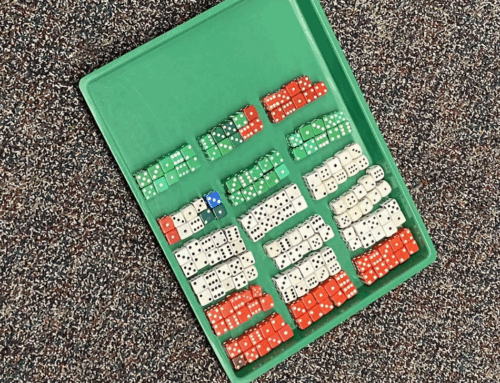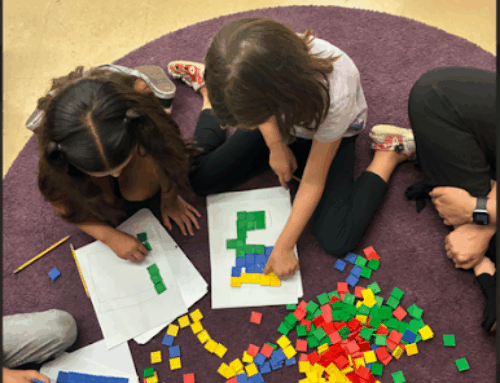Math Workshop:What it Is and Why it Works!

Rusty Bresser
Would you spend your summer vacation doing math? For some, this sounds like a crazy question. But not to the kids from Alpine, California who spent a week this summer at Math Mania. Why was this summer math camp fun, engaging, and successful? One reason is that the activities helped students develop a sense of curiosity about math, something that is so important but often missing in school. The other reason Math Mania was a big hit was the use of Math Workshop.
What is a Math Workshop?
Unlike a typical math lesson where everyone is learning the same thing, Math Workshop is a way to structure math time so that students have choices. During Math Workshop students might have anywhere from three to six different activities from which to choose. They get to choose the activity, they get to choose whether they work alone or with a partner, and they get to choose how long they want to work on a task and where they want to work. Choice, according to Jim Bentley (2016) of the Buck Institute of Education, is the key to motivation. He says that “With choice and voice, teachers are managing the work of students, not controlling it.” In other words, Choice + Agency = Learning.
How does Math Workshop Work?
When I first started using Math Workshop many years ago, I was nervous and reluctant because I thought workshop time would be chaotic. I thought I would lose control. And I didn’t trust that students would be able to make choices and work independently. But once I tried Math Workshop, my fears melted away. I soon discovered that kids are motivated when they have choices. And I also noticed that the students whose behaviors were difficult to manage or those that struggled with math were the ones that benefited most. Math Workshop gave these students the space and time and movement that they needed.
This summer it was exciting to watch the students engaged in the workshop activities. Circulating through the rooms, I could see the joy on kids’ faces as they huddled together on the rug playing dice games, sitting with a friend putting together Pattern Block puzzles, or scanning the list of tasks to see which one to choose. Choice really seemed to be one of the keys to students’ engagement.
Each day after recess, teachers introduced the choices for the day; some activities were leftover from previous days while others were new and easy to introduce. Here’s an example of the activity list on day 3 of the Math Mania week for the 3rd and 4th graders. Feel free to use the links that direct you to the lesson directions:
How Do You Organize and Manage Math Workshop?
Some teachers put out materials and directions for activities at learning centers, and had their students choose where to start.
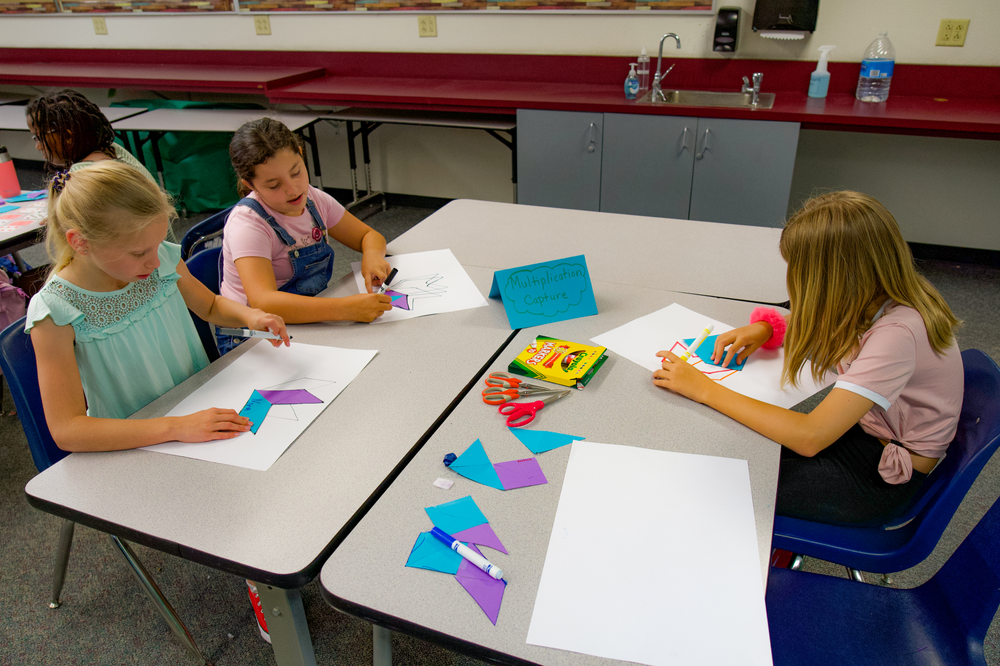
Other teachers put the activity materials and directions in one central location, and let students work wherever they wanted to in the room.
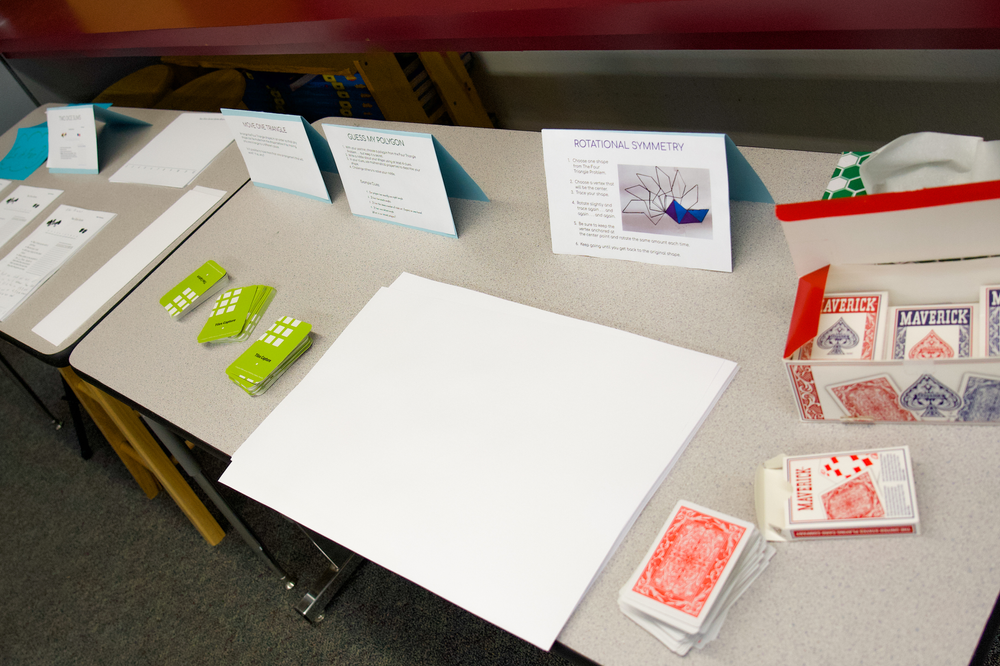
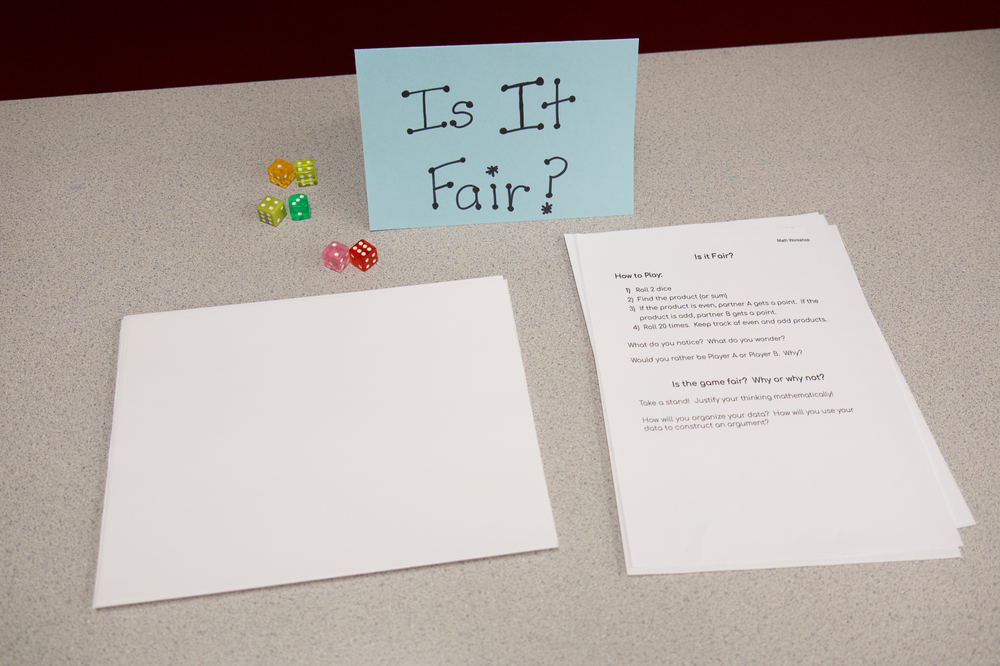
All the teachers created a poster with a list of task choices from which students could choose.
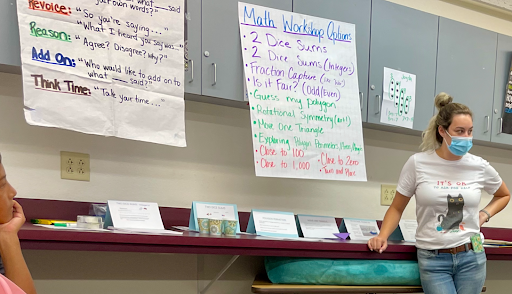
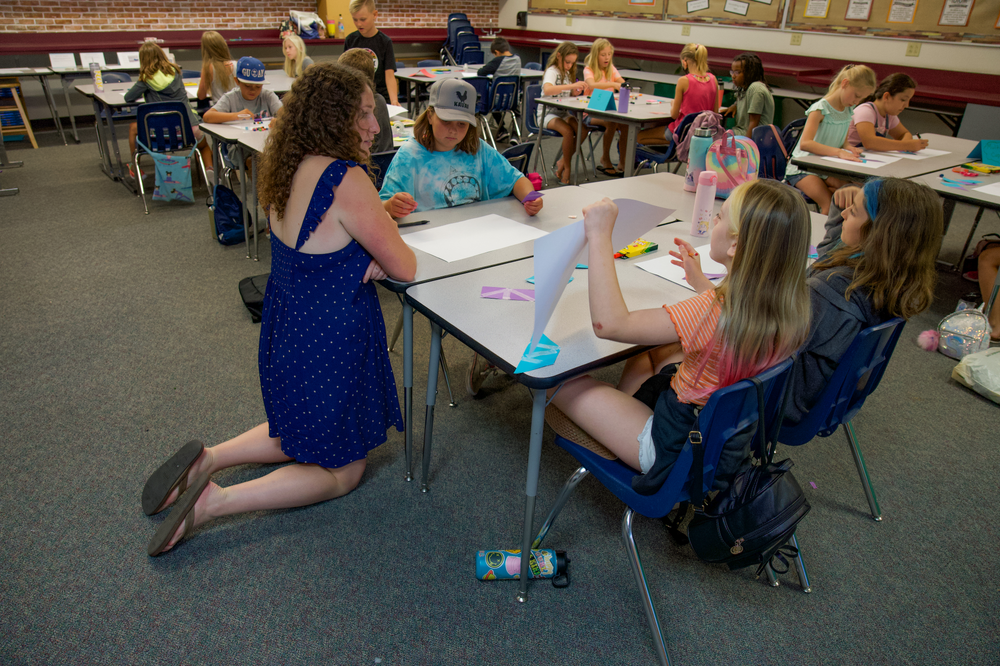
Teachers manage a Math Workshop by shifting their role from direct instruction to a facilitator and manager. After introducing the task choices for the day, the teachers during the Math Mania week circulated throughout the room, monitoring students to make sure they stayed engaged, used materials appropriately, and treated one another with respect. Teachers found themselves free to move from group to group and individual to individual, formatively assessing students’ thinking. But the most important role for the teachers was to ask good questions that encourage mathematical thinking.
Good questions challenge students to explain their math thinking in depth. During Math Workshop, I heard teachers ask questions like,
“Do you think this multiplication game is fair? How do you know?”
“You said seven will come up on the dice the most. How might you prove it?”
“I see you used a recipe of ½ Alka Seltzer and ½ water for your rocket. Why did you choose that recipe?
These types of questions require students to reflect and think about their own thinking. Good questions help students plan, monitor, evaluate, and regulate their approach to an activity or problem.
Math Workshop Tips
Here are a few pointers that help make Math Workshop run smoothly:
- Limit the number of task choices to around six
- Make sure that there’s only one new task on the list to explain
- Independence is key: students should be familiar with most of the tasks
- Try not to micromanage; allow students time to explore
- After the workshop time, gather students and provide specific feedback about how the workshop time went; ask them to self-assess
- Depending on your comfort level, implement Math Workshop once a week at first; take baby steps!
- Choose tasks for workshop that can be repeated; for example, math games are great workshop tasks because they can be played over and over
- If you want, create tasks for workshop that focus on a certain math topic (multiplication, division, addition, geometry, etc.) that you are teaching
- What’s most important upon completing the workshop for the day is to gather students together and choose one activity to reflect on and process. Talk about how the task went, and have the students share their thoughts
Final Thoughts
Math Workshop can be a freeing experience for both the teacher and students. Teachers find themselves free to formatively assess, support individual students, differentiate instruction, and just enjoy kid watching without feeling the need to be in control. Students find themselves free to make choices which leads to engagement, enjoyment, and learning. It’s a win-win for everyone!
For more ideas about Math Workshop, consider the following resources:
